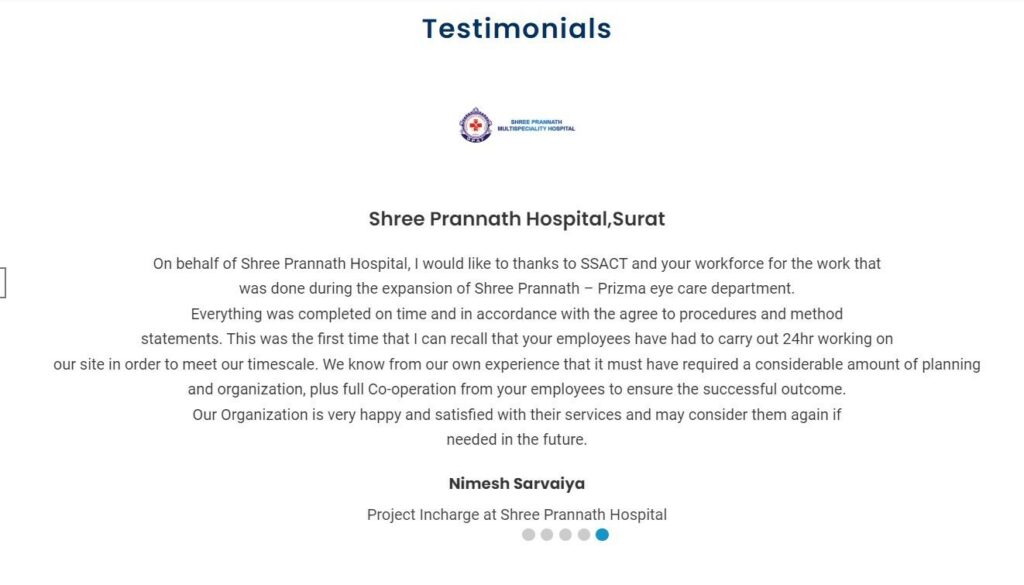
Creating a benchmark in a project is the most underrated yet essentially important part of the project management process. It helps in identifying the goals, measuring the project data and comparing the same, to check if the project has reached its milestones and achieved the performance standards aimed during its commencement.
Benchmarking a project with project management typically
- Ensures that the project management is on par with the business outcomes
- Measures the project’s success rate by using key performance indicators and other strategic tools
- Optimizes the project at regular intervals and formulates strategies for its continual improvement
- Compares a project’s performance with that of the competitors and helps it stay ahead of the competition in the field, among others.
In today’s world where the competition is higher than ever, there is an increasing need for measuring, documenting and reporting the key metrics in a project that indicate its value. This is why modern projects call for benchmarking processes done by the key experts in the field.
Ready to discover the lesser-known facts about benchmarking that the others won’t tell you?
Read ahead.
Too busy to read? Contact our expert team over a quick call and get the best project managers who can create benchmark for your project using the best practices in the industry.Click here for more.
Fact no. 1 Benchmarking is quintessential

A good project cannot be managed effectively without creating a benchmark. This process not only improves the project value, but makes it successful and competent. With the best practices, it draws utmost efficiency out of the 5 pillars of benchmarking:
- Assessment: A good benchmarking process helps the project managers and their teams in attaining the feedback required to fulfil their duties and succeed in good decision making.
- Accountability: A coherent benchmarking process helps in the successful collaboration of stakeholders and the project teams
- Identification of process gaps: A strategic benchmarking process helps in identifying the potential risks in the project’s progress and gives references for alleviating the same in the future projects
- Consistency & improvement: A straightforward benchmarking process can make the decision-makers aware of the pros and cons in their processes and helps them improve in the highlighted areas of work
- Milestone achievement: A competent benchmarking process helps in achieving the project’s milestones in the set timeline with utmost satisfaction
Finding it hard to follow? Call the experts at SSACT and we will help you understand everything about benchmarking for your next project!
Fact no. 2 Benchmarking can measure productivity
The productivity of a project’s management will remain as a mere word of mouth without proper benchmarking. Good benchmarking provides reliable reports and supporting data that track the productivity of the process using key metrics specific to the project. Some of the common metrics tracked in a benchmarking process includes:
- Budget performance, measuring the difference between the estimated cost and actual cost
- Schedule performance, measuring the difference between project schedule and actual completion dates
- Project Cost, assessing the overall cost of the project
- Project Quality, assessing the overall quality of the project
- Degree of project risk, measuring the possibilities of potential failures or risks in the process
- Client satisfaction, analysing the satisfaction of the client based on the project’s alignment with client’s interests, requirements etc.
As a result of the measurement of productivity with the above metrics, a project’s key capability in delivering the outputs is communicated to different teams, thereby ensuring a well-coordinated and centralized process.
Fact no. 3 Competitive benchmarking keeps you ahead of others
In a field as elaborate as the construction field, benchmarking cannot be complete without a competitive character. It has to set performance goals as per the industry standards, in comparison with the fellow competitors. This process may call for in-house teams or third-party consultants who analyse and understand the functioning of teams in other organizations for planning improvements and strategies in the project.
Competitive benchmarking is a secondary process that typically involves the following steps:
- Analysing the market trends to understand new industry standards
- Conducting market surveys for understanding the competitor’s stand-out offerings
- Comparing the current process with the acquired data and its inferences
- Creating new plans and strategies for improvement in the current process
Did you know? Almost 90% of our projects have used competitive benchmarking for strategic project management. Take a look at the successful projects by SSACT here.
Fact no. 4 Benchmarking product quality boosts stakeholder satisfaction
The benchmarking process gives sufficient data for the clients, investors or stakeholders to track the project’s performance with increased transparency, legibility and reliability. This further encourages their thorough participation and develops opportunities for fruitful collaboration in future. With good benchmarking, stakeholders are:
- Reassured of the current project’s line of progress
- Encouraged to work together again, in the future
- Motivated to share referrals for other stakeholders or investors or clients
With the promise of quality brought by benchmarking, client satisfaction is high, thereby ensuring good business outcomes.
Don’t believe us? Read this testimonial from our satisfied client and see it for yourself!

Read more at www.ssact.com
Fact no. 5 Internal & external benchmarking need equal importance

Benchmarking, much like any other project management process, needs to work inside-out. It has to include both internal and external benchmarking processes because:
- Internal benchmarking establishes the organisational standards for comparison and evaluation of internal project types that will provide data for the pattern of work in future projects.
- External benchmarking focuses on analysis of performance using external, third-party sources that provide data for improving the performance in the project at hand.
Good benchmarking is done as an empirical process that can simultaneously measure and monitor the metrics in the current project whilst arriving at strategies and methodologies that can be used for similar projects in future. This ensures an informed and consistent approach towards project management.
Fact no. 6 Successful benchmarking can reset project goals
Small and large scale projects have a different set of goals and requirements unique to their nature. Large-scale projects in particular, have multiple goals desired at the end of the project completion process that may change or get altered along its course. This may be due to one of the below reasons:
- Unexpected structural failures in between different phases of the project
- Non-adherence to budget due to changes in market rates
- Unprecedented external factors such as the COVID outbreak etc. that may affect the pattern of work
Good benchmarking monitors the project management process at regular intervals that helps reconfigure the goals according to the new/altered requirements with backup strategies and contingency plans.
Read about “The expansion of new wing at Gateway Hotel Taj” that was held back from shutdown by using state-of-the-art strategies.
Fact no. 7 Best practices in benchmarking promise high ROI

Return of Investment (ROI) is the most desired business outcome in any project. Adopting the best, modern practices with cutting-edge tools can improve the efficiency in the project management process that reflects on quality, time and cost, equally. Such lucrative practices give maximum profits to the clients, offering them high satisfaction, along with establishing a good rapport.
Are you looking for a profitable collaboration like that? Contact us for your next project and experience the best of project management in India!

